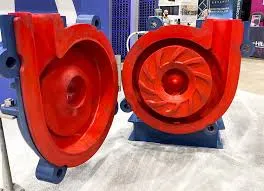Macedonian
- Afrikaans
- Albanian
- Amharic
- Arabic
- Armenian
- Azerbaijani
- Basque
- Belarusian
- Bengali
- Bosnian
- Bulgarian
- Catalan
- Cebuano
- Corsican
- Croatian
- Czech
- Danish
- Dutch
- English
- Esperanto
- Estonian
- Finnish
- French
- Frisian
- Galician
- Georgian
- German
- Greek
- Gujarati
- Haitian Creole
- hausa
- hawaiian
- Hebrew
- Hindi
- Miao
- Hungarian
- Icelandic
- igbo
- Indonesian
- irish
- Italian
- Japanese
- Javanese
- Kannada
- kazakh
- Khmer
- Rwandese
- Korean
- Kurdish
- Kyrgyz
- Lao
- Latin
- Latvian
- Lithuanian
- Luxembourgish
- Macedonian
- Malgashi
- Malay
- Malayalam
- Maltese
- Maori
- Marathi
- Mongolian
- Myanmar
- Nepali
- Norwegian
- Norwegian
- Occitan
- Pashto
- Persian
- Polish
- Portuguese
- Punjabi
- Romanian
- Russian
- Samoan
- Scottish Gaelic
- Serbian
- Sesotho
- Shona
- Sindhi
- Sinhala
- Slovak
- Slovenian
- Somali
- Spanish
- Sundanese
- Swahili
- Swedish
- Tagalog
- Tajik
- Tamil
- Tatar
- Telugu
- Thai
- Turkish
- Turkmen
- Ukrainian
- Urdu
- Uighur
- Uzbek
- Vietnamese
- Welsh
- Bantu
- Yiddish
- Yoruba
- Zulu
Telephone: +86 13120555503
Email: frank@cypump.com
Дек . 07, 2024 05:56 Back to list
horizontal slurry pump
Understanding Horizontal Slurry Pumps
Horizontal slurry pumps play a crucial role in various industrial applications, particularly in the mining, mineral processing, and construction industries. These pumps are specifically designed to transport abrasive, viscous, and heavy slurries that typically consist of solid particles suspended in a liquid medium. Unlike traditional centrifugal pumps, horizontal slurry pumps are engineered to handle challenging materials without losing efficiency or causing damage to the system.
Design and Functionality
The primary structure of a horizontal slurry pump consists of a pump casing, impeller, volute, and discharge flange. The liquid is drawn into the pump through the suction inlet and propelled by the impeller, which spins rapidly, creating a centrifugal force. This force pushes the slurry through the volute and out through the discharge flange. The horizontal orientation of the pump allows for easier installation and maintenance compared to vertical pumps, making it a popular choice in many operational settings.
One of the defining features of horizontal slurry pumps is their ability to withstand abrasive wear. The materials used in the pump construction typically include high-chrome alloys, elastomers, or rubber to provide enhanced durability against the coarse particles present in the slurry. This wear resistance is crucial, as the solid constituents can lead to significant pump degradation if not adequately managed.
Applications
Horizontal slurry pumps are extensively used in various sectors, including
1. Mining and Mineral Processing In this sector, slurry pumps transport materials such as ore, tailings, and mine water. They play an essential role in the extraction process and in the transportation of slurry for further processing.
2. Construction In construction applications, these pumps are utilized for dewatering, transporting concrete slurries, and handling wastewater from construction sites. The ability to manage high solids content makes horizontal slurry pumps ideal for dealing with the challenges presented in this industry.
3. Chemical Processing In various chemical processes, these pumps manage slurries containing solid catalysts, reaction intermediates, or by-products. Their design minimizes the risk of clogging and ensures a steady flow of materials necessary for consistent processing.
horizontal slurry pump

Advantages
1. High Efficiency Horizontal slurry pumps are designed to operate efficiently even with high solid content, making them suitable for demanding applications.
2. Ease of Maintenance The horizontal configuration simplifies the maintenance process, allowing operators to access critical parts without dismantling the entire system.
3. Versatility These pumps can be adapted to handle a wide range of slurry types, from finely ground slurries to coarse material mixtures, making them highly versatile in different industrial settings.
4. Customization Many manufacturers offer customizable options for horizontal slurry pumps, allowing organizations to specify materials, sizes, and other features tailored to specific operational needs.
Challenges and Considerations
While horizontal slurry pumps are highly effective in their applications, they do have some challenges. One of the main concerns is the potential for wear over time, which can lead to decreased performance and increased maintenance costs. Regular inspection and timely replacement of wear parts are essential to maintaining operational efficiency.
Moreover, selecting the right pump for a specific application requires careful consideration of multiple factors, including the nature of the slurry, flow rate requirements, and the size of the solids. A thorough understanding of these parameters will help ensure that the right pump is chosen, thereby optimizing performance and minimizing downtime.
Conclusion
Horizontal slurry pumps are an integral part of modern industrial processes, particularly in sectors where the transport of heavy and abrasive materials is necessary. Their robust design, efficiency, and ease of maintenance make them indispensable tools for operators in mining, construction, and chemical processing industries. As technology advances, we can expect further improvements in pump design and functionality, resulting in even more efficient systems capable of meeting the growing demands of various industrial applications. Investing in the right horizontal slurry pump is vital for businesses aiming to enhance operational performance and reduce maintenance costs over time.
-
ISG Series Vertical Pipeline Pump - Chi Yuan Pumps Co., LTD.|High Efficiency, Energy Saving, Low Noise
NewsJul.30,2025
-
ISG Series Vertical Pipeline Pump- Chi Yuan Pumps|High Efficiency&Low Noise
NewsJul.30,2025
-
ISG Series Vertical Pipeline Pump-Chi Yuan Pumps Co., LTD.|High Efficiency&Energy Conservation
NewsJul.30,2025
-
ISG Series Vertical Pipeline Pump - Chi Yuan Pumps Co., LTD.|Advanced Hydraulic Design&Energy-Efficient Solutions
NewsJul.30,2025
-
ISG Series Vertical Pipeline Pump - Chi Yuan Pumps Co., LTD.
NewsJul.30,2025
-
ISG Series Vertical Pipeline Pump - Chi Yuan Pumps Co., LTD.|energy-efficient fluid handling&industrial durability
NewsJul.30,2025










